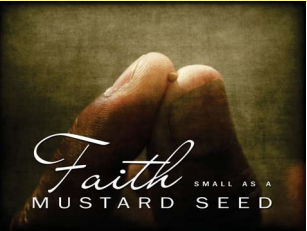I do not know exactly when it began; although I know it was many years ago, I became fascinated with the act of “wondering”. Living here in this great city with such developed commerce, banking, education and health care, to name a few of our resources, we are really very good at figuring things out. We are unsurpassed in areas such as research and scholarship with internationally recognized centers for education and science.
With all that, how good are we at wondering? To wonder usually means to encounter something unexpected, beautiful or inexplicable such that one responds by being astonished, amazed, stands in awe and is dumbfounded. Such an encounter in my experience is evocative and draws me out of myself. In fact, it seems that wonder might be the stepping stone to recognize the transcendent and openness to God.
There is so much we simply do not understand. In a busy, “productive” life it seems often the case that much goes unnoticed. This seems the more so as folks walk around plugged into some device barely noticing the traffic passing or the beauty of a child’s giggle or the scent of a Lilac tree in bloom. I wonder if the pandemic is changing this.
The readings this weekend invite, even challenge us to stop and notice. How does seed sown in the earth grow to become an abundant crop ripe for harvest? How does it come to pass a tiny seed grows to a shade tree and home for families of birds?
At a university research center, we could analyze these questions, research and experiment and prepare scholarly papers for scientists to debate. We would have answers, sort of. However, if we wonder about these questions, our conclusions will be far different from those of the scientists.
The numbers of parents of newborns with whom I have spoken confirm unequivocally that new moms and dads especially are drawn into wondering in a most dramatic way. Oh they marvel at the gifted medical services they receive
and realize that medicine is not the cause of the new life they so cherish.
Abraham Joshua Heschel, a brilliant Jewish theologian, once wrote: “Wonder rather than doubt is the root of all knowledge”. Saint Paul in examining our human journey puts it this way: “We walk by faith not by sight”. In my thinking true understanding of our human journey can never be achieved apart from wondering and faith.
Some have argued that faith and intellect are opposed to one another. That is not true; they are not opposed, they are complimentary.
Coming into summertime seems the most perfect time to slow down and wonder more. And if you need a little help, ask a child. Children are experts on wondering, a talent adults seem to put aside and replace with reasoning. So, remember, it is not either/or, it is both/and. Abraham Heschel also once noted, a person who never wonders cannot find God.
Fr. Ronan


Eleventh Sunday in Ordinary Time
June 12/13
In today’s Gospel, Jesus compares the beginning of God’s kingdom to a mustard seed. This tiny seed, which fits in the palm of a hand, can grow to fifteen feet with sprawling branches. Like the mustard seed, the Christian community had a tiny, seemingly insignificant beginning. The church, which began with about 120 followers, added three thousand people on Pentecost Day following the descent of the Holy Spirit. Since then, the number of Christ’s disciples has grown incalculably and continues to grow throughout the world. Good stewards go about God’s business of “planting seeds” among all those they encounter. What will we do this week to “plant seeds” and add to God’s kingdom?
